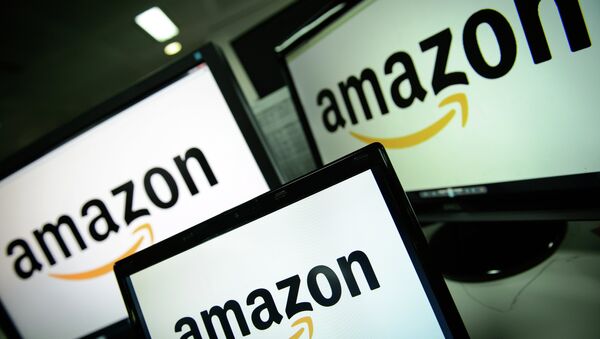On the side-lines of the ongoing two-day “Amazon Smbhav” event in New Delhi, Amazon India Vice President Gopal Pillai revealed that the company was open to discussions with domestic Indian traders protesting against the “predatory pricing” and “deep discounting” tactics being practiced by e-commerce players in India.
“We do not take any of these things lightly. We are compliant and we will always be compliant even if it impacts the business”, said Pillai. “And we are always open for discussions. I check my emails and I respond to every one of them. I am willing to talk to anyone to hear that point of view”.
Pillai also highlighted how Amazon, with its multiple programmes and initiatives, is penetrating deeper into India’s geography to help local manufacturers sell their products at their own prices.
“We help you get your local products, get more visibility, and you can even do the delivery. You don't have to pay us for the delivery. We won't charge you anything, we provide the customer experience, and the adoption is fantastic. If we did not have a thriving marketplace, we wouldn't have seen 3,500 properties and 18 millionaires in the year 2019 alone”, Pillai added.

However, the Confederation of All India Traders (CAIT), which organised nationwide protests during Amazon boss Jeff Bezos’ India visit on 15 January, is not in favour of any dialogue with those whom they consider “economic terrorists invading India”.
“Until and unless these e-commerce brands do not comply to the norms of the FDI policy in India, there is no use in initiating a conversation", Praveen Khandelwal, secretary general of CAIT, told Sputnik.
Khandelwal questioned that of the 550,000 (over half a million) local manufacturers that Amazon claims to have empowered in India through its online marketplace, how many have entered the list of “top 10 sellers” in the country.
“It needs to be investigated whether the alleged exclusive arrangements, deep-discounting and preferential listing by the opposite parties (Amazon and Flipkart) are being used as an exclusionary tactic to foreclose competition and are resulting in an appreciable adverse effect on competition”.
The country’s anti-trust body, the Competition Commission of India (CCI), has ordered a probe to investigate whether e-retailers are violating India’s Foreign Direct Investment (FDI) policy in charges levied against Amazon by the CAIT, which represents over 70 million local traders and shopkeepers in India.
Bezos arrived in India hoping to meet Prime Minister Narendra Modi. However, ahead of Delhi’s state election in February and in the wake of the ongoing investigations against Amazon, the meet was cancelled.
Participating in the annual multilateral Raisina Dialogue-2020 in New Delhi, Indian Railway Minister Piyush Goyal on Thursday advised foreign investors in India to adhere to Indian laws in letter and spirit.
#Raisina2020
— Geeta Mohan گیتا موہن गीता मोहन (@Geeta_Mohan) January 16, 2020
Big story!@PiyushGoyal on unfair practices by @amazonIN :
Message to investors is please follow letter and spirit of the law
Amazon is not doing a favour to India by investing a billion dollars@IndiaToday @MEAIndia @DrSJaishankar @raisinadialogue pic.twitter.com/AKYwczbjLT
The Raisina Dialogue has emerged as India’s flagship conference on geopolitics and geo-economics. The conference is hosted by the Observer Research Foundation, an independent think tank, in collaboration with India’s Ministry of External Affairs.
As of now, Bezos, who has revealed that Amazon aims to use its global footprint to sell $10 billion worth of “Made in India” goods by 2024, has not spoken publicly on the ongoing protests, CCI investigations against Amazon, or his future meeting plans with Prime Minister Modi.



